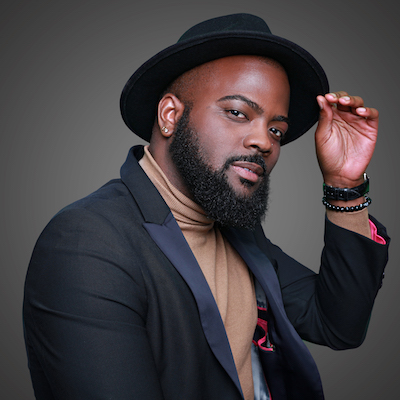Preston Mitchum chose to study law to challenge the notion that all laws are morally right simply because they’re “the law.” Mitchum states, “If we just rested on the laurels of ‘well, that’s the law’ then nothing would change because no one would force it to change.” For Mitchum, the recognition that the law is not always moral and often is rooted in systems of oppression is directly tied to his advocacy work.
Mitchum’s work experience led him to become deeply interested in organizing work that informs advocacy and policy, given that policy typically stems from the top-down. According to Mitchum, “the grassroots work should instead inform the policy and advocacy work.” Furthermore, his experience working with groups such as BYP100 has taught him that “we need policy folks that are actually good at grassroots organizing too.” If policy is disconnected from communities themselves, it fails to address the needs of community members. Policy should be informed by the very people it impacts; the foremost experts on how to address community needs will always be the community members themselves who have lived experience.
Mitchum has also actively worked to create change within the legal field as the first openly LGBTQ+ Chair of the Washington Bar Association’s Young Lawyers Division. As Mitchum states, many Bar associations are predominantly corporate-driven, White-led, and structurally rigid. This rigidity oftentimes discourages lawyers from demanding radical change and encourages complacency. In order to genuinely serve communities, lawyers must challenge institutionalized norms rather than reinforce them. In reflecting on his experience with the legal field, Mitchum states, “It’s deeply hard for me to fathom how the law is meant to positively shape folks’ lives but also reifies everything we’ve learned about the same racist rigid structures and institutions, and I just couldn’t be that lawyer.” In contrast to the makeup of most Bar associations, Mitchum praised grassroots organizing for being overwhelmingly led by people of color, young people, immigrants, and people who experience poverty. These activists will be directly affected by the change they advocate for. Quoting Massachusetts Congresswoman Ayanna Pressley, Mitchum affirmed that “the people closest to the pain should be closest to the power.” Mitchum says that people in the legal field need to stop assuming that those already in positions of power have the solutions, and start really listening to those most affected by these systems and those most involved in grassroots work.
In reflecting on what the legal profession can learn from one another and grassroots work, Mitchum states “the legal field has missed the boat for marginalized communities for so many years.” Mitchum wants the LGBTQ+ legal community to be honest with ourselves about how our community often leads to assimilation rather than change. Mitchum states, “When I’ve gone to [LGBTQ+] legal events, they don’t feel inviting to Black or Brown or radical lawyers. Many of them feel like I’m going to a traditional Bar event, which can be so boring for queer and trans lawyers.” Mitchum argues that LGBTQ+ lawyers are inherently radical even when we don’t want to be. Rather than fighting for assimilation or equality, we should fight for radical change that ensures equity. Mitchum believes that LGBTQ+ lawyers must promote radical thought and unconventional discourse within the legal field, otherwise we risk emulating the same practices and behaviors that have resulted in our oppression.
Through his policy and advocacy work, Mitchum has brought the issues of multiple marginalized people to the forefront. In order to address the systemic issues that face the legal community, Mitchum says that institutions must begin by analyzing the makeup of their members and listening to the most marginalized members, asking how we can best serve and support them. Too often, members of the legal field, sometimes with good intentions, assume what’s best or the needs of others. Yet there is no cookie-cutter solution to systemic issues. Rather, institution leaders must engage with and listen to their members and grassroots organizations to fully understand the needs that matter most.
Reflecting on his personal experience with grassroots organizing and the legal field, Mitchum states, “Grassroots work fails when it is transactional; it succeeds when you’ve taken the time to nurture and sustain relationships.” Mitchum’s experience with policy, advocacy, and grassroots organizing has allowed him to create real change informed by the needs of marginalized communities. All of us with the National LGBT Bar are proud to have Mitchum as a member of the Bar and of all the work he has done to serve his communities.
Mitchum is a member of the 2020 40 Best LGBTQ+ Lawyers Under 40 class. He currently serves as the Director of Policy for Unite for Reproductive and Gender Equity (URGE), a national and multi-state driven organization that is focused on empowering young people in the South and Midwest with reproductive health, rights, and justice. In Mitchum’s words, URGE is “unapologetically abortion-positive, believes in decriminalizing sex-work and blackness, and decriminalizing abortion.” In addition to working full-time at URGE, Mitchum is also an adjunct professor of law at Georgetown University Law Center where he has taught LGBTQ+ health law and policy for the past three years.

